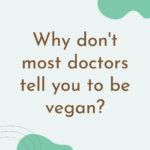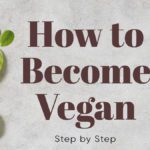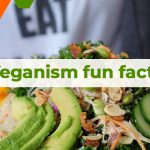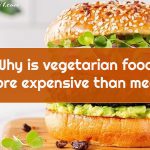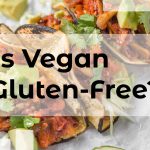Veganism VS Carnivore: Which One is Better?
Explore the merits and drawbacks of veganism and the carnivore diet
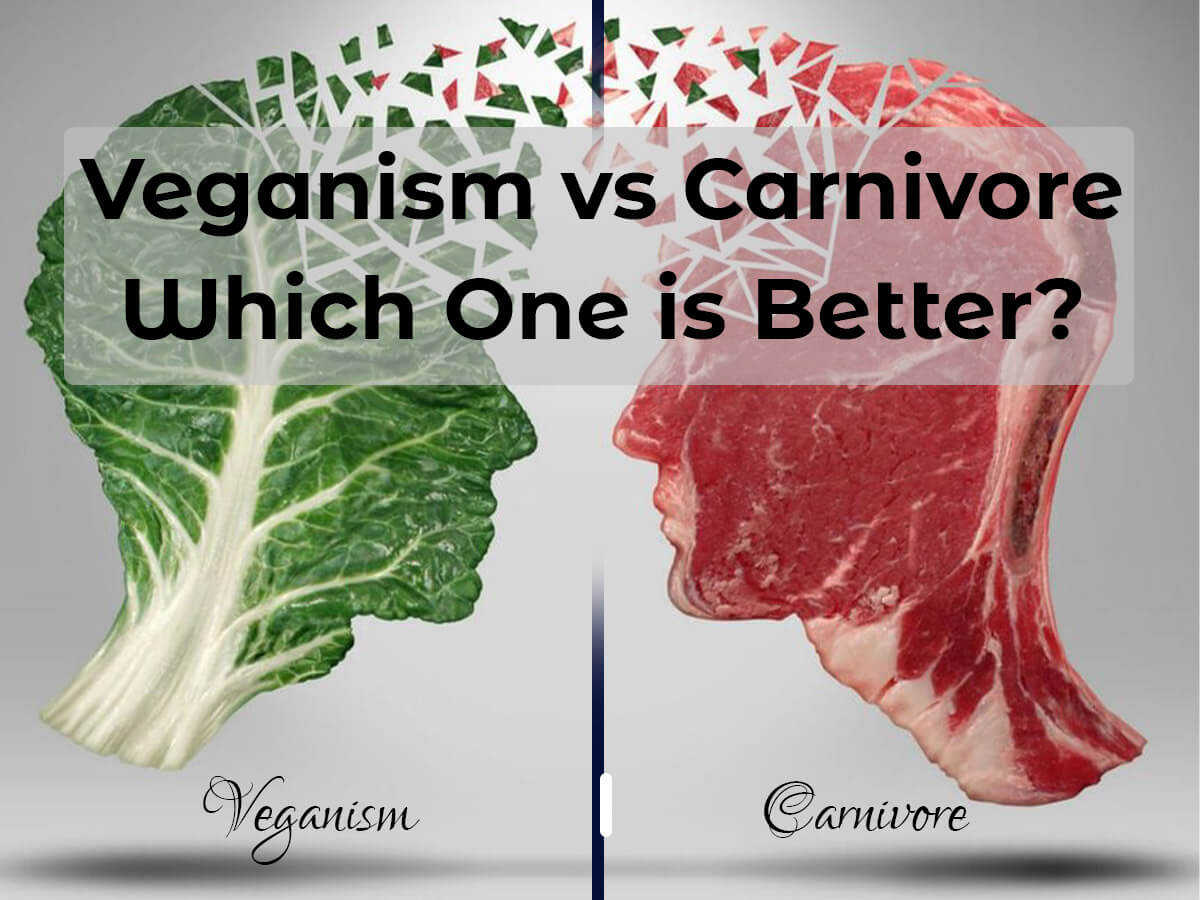
Are you ready to dive headfirst into a deliciously juicy debate?
Today, we’re tackling the age-old question that has fueled countless dinner table discussions and sparked fiery arguments: veganism versus carnivore diets.
Now, I know what you might be thinking: “Veganism and carnivore diets? They couldn’t be more different!” And you’re absolutely right!
These dietary approaches are like the yin and yang of the food world, each with a passionate following and fervent beliefs. But here’s the thing: amidst all the noise and conflicting opinions, we’re here to find out the truth. Which one is truly better for our health, our planet, and the well-being of animals?
Now, I must admit, I’m a proud member of Team Vegan, and I wear my leafy green badge with pride. But let’s put our biases aside and approach this debate with an open mind and a hunger for knowledge (pun intended). Whether you’re a seasoned vegan, a curious carnivore, or someone who wants to make more informed choices about their diet, this article is for you.
Join me as we explore the merits, drawbacks, and various considerations that come into play when comparing veganism and carnivore diets. Let the food fight begin! We’ll dissect the nutritional facts, weigh the health benefits, and dig deep into both dietary choices’ environmental and ethical implications. By the end of this journey, you’ll be armed with knowledge and empowered to make informed decisions.
So grab a plant-powered snack, flex those taste buds, and join me on this rollercoaster ride of flavors, facts, and food for thought. Let the veganism versus carnivore showdown begin!
In this article you will read:
Veganism
Let’s dive into the world of veganism, where plants reign supreme. It’s a lifestyle choice that goes beyond what’s on your plate—a commitment to compassion and a love for animals.
Picture this: a vegan’s plate is a canvas of deliciousness, filled with nutrient-packed foods like quinoa, chickpeas, and kale, creating a symphony of flavors and textures.
But it’s not just about the food. Veganism is a way of living that extends to all aspects of life, from choosing cruelty-free cosmetics to embracing eco-friendly fashion.
It’s about making choices that align with our values, promote sustainability, and nourish our bodies with wholesome goodness.
Carnivore
The carnivore diet, with its heavy emphasis on animal products, can have some drawbacks we should be aware of.
For one, it can contribute to environmental concerns, as the meat industry is responsible for significant greenhouse gas emissions, deforestation, and water pollution.
Additionally, ethical dilemmas surrounding animal welfare come into play.
The carnivore diet relies heavily on animal products, which often means supporting factory farming practices that raise ethical concerns about the treatment and welfare of animals.
So ready or not, we will discover the winner of veganism vs. carnivore!
Ethics & Animal Welfare: Veganism’s Compassionate Approach
Regarding ethics and animal welfare, veganism shines as a compassionate approach.
Vegans believe in minimizing harm to animals as much as possible, excluding animal products from their diet and lifestyle.
Veganism is all about recognizing the inherent value and rights of animals. It’s about acknowledging that they can feel pain, experience emotions, and have their interests.
While respecting people’s dietary choices is important, it’s worth considering the ethical implications.
The carnivore diet is often based on ancestral eating habits and the belief that humans are meant to eat a diet primarily composed of animal products.
Choosing a carnivorous diet might inadvertently contribute to the suffering of animals, as it increases the demand for meat, dairy, and other animal-derived products.
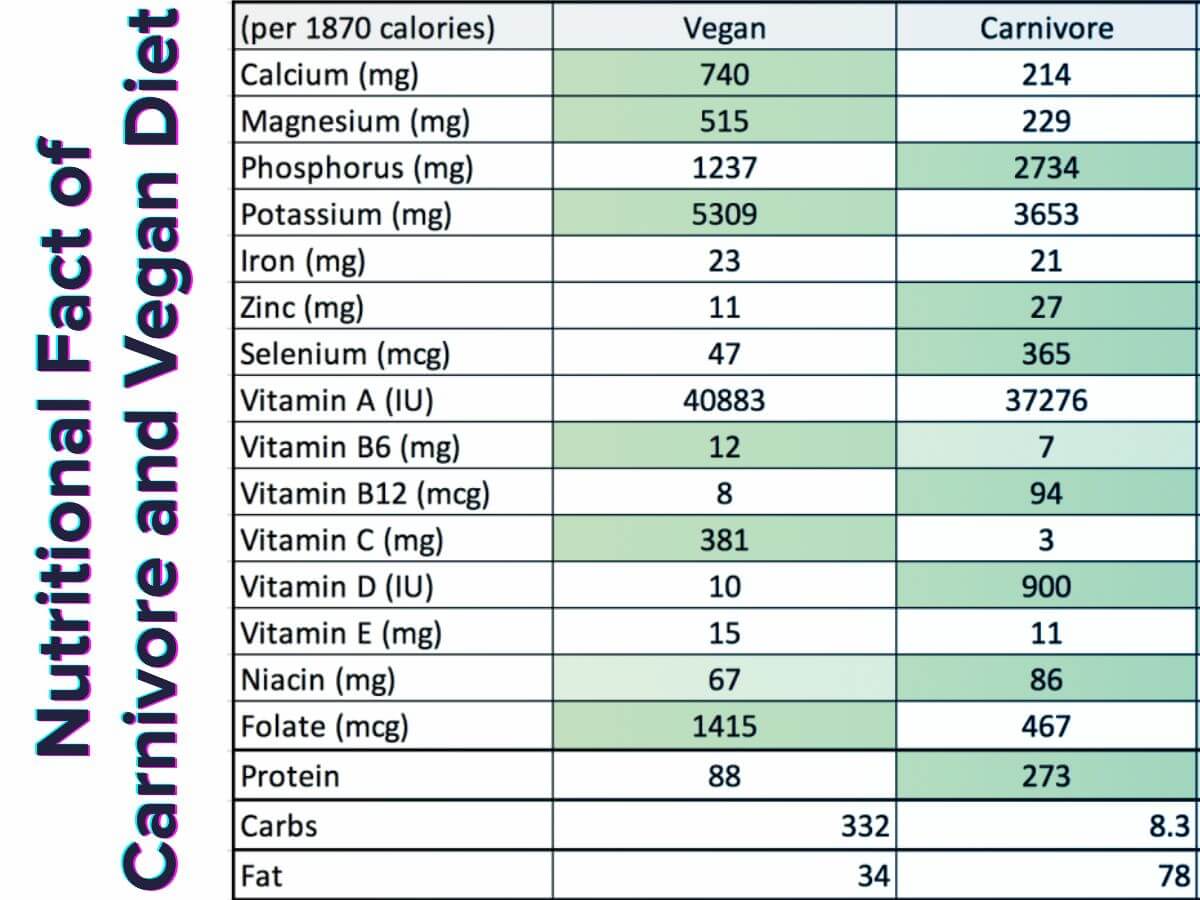
Nutritional Considerations: Assessing Macronutrients & Micronutrients
Now, let’s dive into “Nutritional Considerations: Assessing Macronutrients and Micronutrients” and how they stack up when comparing Veganism and Carnivore diets.
You should stop reading briefly and try to guess the winner in this aspect. Veganism or carnivore; which one is better, do you think?
Let’s start with protein, a vital macronutrient. Many people often think of meat as the main source of protein, but guess what? Plants can pack a protein punch too!
Vegans can get protein fixes from beans, lentils, tofu, tempeh, quinoa, and seitan.
Now, onto fats. Vegans often choose plant-based fats like avocados, nuts, seeds, and oils. On the other hand, Carnivores tend to consume animal fats from meat, butter, and other animal products.
But here is the point: the fat that veggies friends provide from their sources is way healthier than the other group!
Health Benefits of a Plant-Based Diet: Examining the Research
So, what are the health benefits? Well, research suggests that a plant-based diet can positively affect your well-being.
First, it tends to be lower in saturated fat and cholesterol than a carnivorous diet. This can help lower the risk of heart disease and promote better cardiovascular health.
Plants are also fiber-rich, which can keep your digestion happy and may reduce the risk of certain types of cancer, such as colon cancer.
Vegans take the plant-based diet to the next level by excluding all animal products, including meat, dairy, eggs, and even honey.
On the other hand, I am not happy to say that excessive use of red and processed meats can easily cause an increased risk of certain diseases, such as heart disease, certain types of cancer, and even type 2 diabetes.
Carnivore Diet: The Role of Animal Products in Optimal Nutrition
As the name suggests, the carnivore diet revolves around consuming only animal products.
That means saying goodbye to fruits, veggies, grains, legumes, and all those plant-based goodies we know and love.
One of the primary drawbacks of the carnivore diet is its nutritional imbalance. By cutting out plant-based foods, you’re missing out on essential nutrients such as fiber, complex carbohydrates, and a wide array of vitamins and minerals.
I am not going to ignore the animal product advantages either. However, these can easily be obtained through plant-based sources too. Legumes, tofu, tempeh, nuts, seeds, and whole grains are excellent protein sources!
By adopting a vegan lifestyle, you’re taking care of your health and contributing to the well-being of animals and the planet.
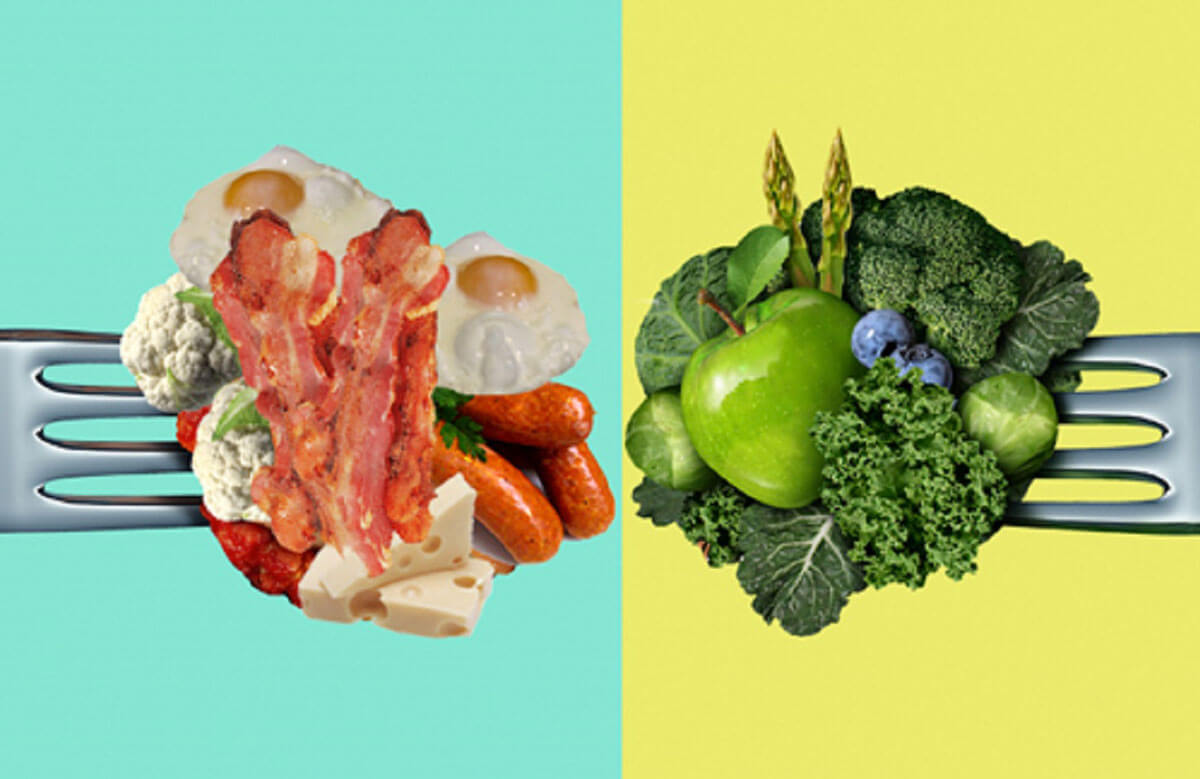
Veganism & Carnivory: Addressing Common Misconceptions
Many think Certain nutrients like vitamin B12, iron, and omega-3 fatty acids are harder to access on a vegan diet. However, with proper planning and attention to nutrition, getting all the necessary nutrients from plant-based sources or fortified foods is possible.
Foods High in Omega 3 for Vegetarians and Vegans
What Foods Are High in B12 Vitamin For Vegetarians and Vegans
Some people believe that veganism means restricting and not enjoying food and life. However, veganism is about doing the best you can to reduce harm. It’s a journey, and everyone starts somewhere.
Now, let’s briefly touch on carnivory, the opposite end of the spectrum. Carnivory is the practice of consuming an animal-based diet exclusively.
Firstly, the meat industry has a significant environmental footprint. Animal agriculture contributes to deforestation, water pollution, greenhouse gas emissions, and biodiversity loss.
Secondly, from an ethical standpoint, we vegans advocate for the rights and welfare of animals. The mass production of animals for food often involves factory farming, where animals are subjected to overcrowded and inhumane conditions.
Environmental Concerns: Exploring the Impact of Animal Agriculture
Buckle up because we’re diving into veganism versus carnivore diets. And yes, I’m a big supporter of veganism, so prepare for some plant-powered enthusiasm!
Considering you are a carnivore, what do you think is the result of veganism vs. carnivore? List your reasons to see if you are right.
Let’s start with greenhouse gas emissions. Animal agriculture, especially livestock production, is responsible for many global emissions.
Cows, for instance, release methane gas, a potent greenhouse gas contributing to climate change.
Water usage is another issue. Animal agriculture requires a huge amount of water.
From growing animal feed to providing water for the animals, it’s like a never-ending thirst quencher.
And with water scarcity becoming a serious concern, we must rethink our priorities.
By adopting a vegan diet, which eliminates all animal products, individuals can significantly reduce their carbon footprint and contribute to mitigating climate change.
Furthermore, a vegan diet requires fewer natural resources, such as water and land, than a carnivorous diet. Raising animals for food production consumes water, crops, and land. By choosing plant-based alternatives, we can conserve these valuable resources, reduce deforestation, and protect biodiversity.
Ethical Dilemmas: Balancing Animal Rights & Human Nutrition
Not easy, huh? On the one hand, our furry friends deserve to live a life free from harm and suffering.
On the other hand, we have our dietary requirements as human beings. So, how do we navigate this moral maze?
Let’s start with veganism. This dietary choice is about saying no to animal products, including meat, dairy, eggs, and honey.
Vegans argue that animals have their rights to life and freedom, just like we do.
By adopting a vegan lifestyle, we can drastically reduce the demand for animal products and the harm caused to animals in the food industry.
Some folks might argue that a carnivorous diet is more natural for humans. After all, our ancestors used to hunt and eat meat, right?
Are human beings herbivores? – 15 reasons that prove that human herbivores
Recent scientific research suggests that a well-planned vegan diet can meet all our nutritional needs just fine.
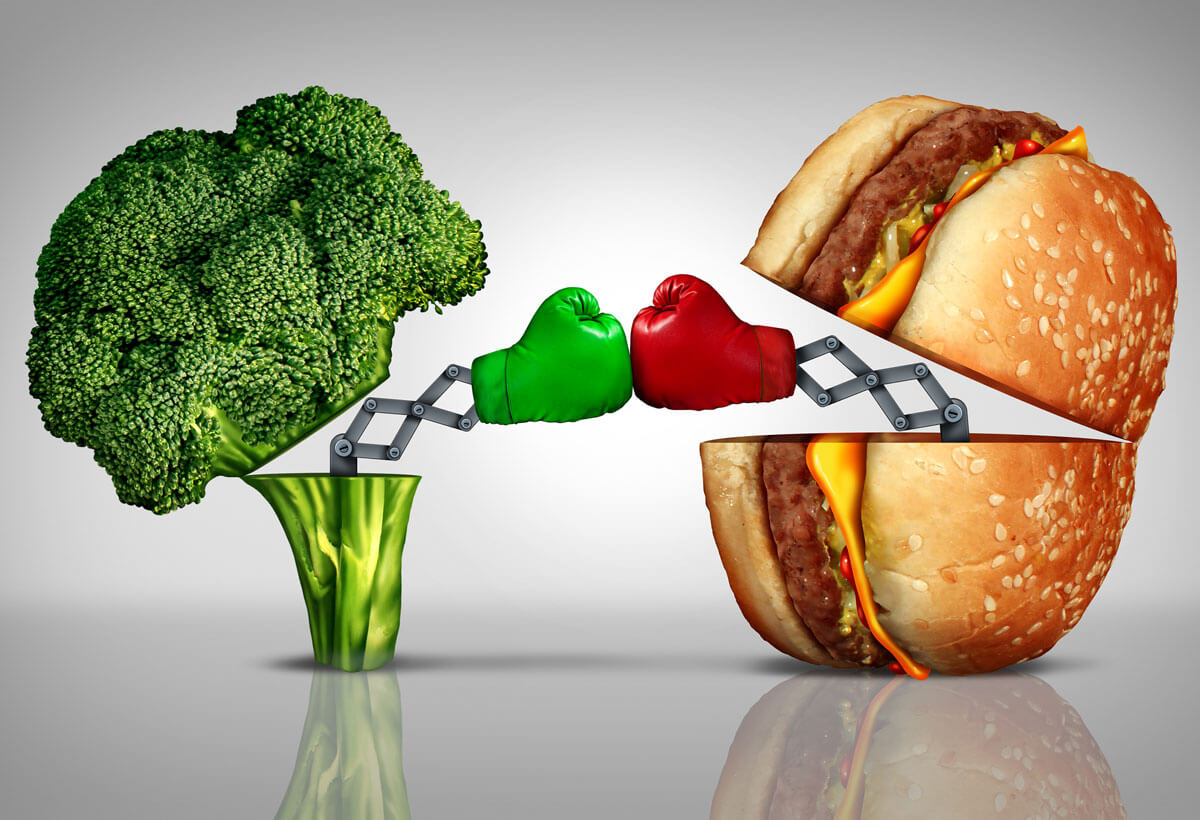
Health Risks & Benefits of a Carnivore Diet: Unraveling the Controversy
This can be tricky when you try to find veganism vs. carnivore; which is better?
Proponents of the carnivore diet argue that it can lead to weight loss, improved mental clarity, and reduced inflammation.
However, it’s important to note that scientific research on the long-term effects of this diet could be more extensive.
One of the potential health risks associated with a carnivore diet is nutrient deficiencies. Since plant foods are excluded, important nutrients like fiber, vitamins, minerals, and antioxidants can become scarce.
Another concern is the high intake of saturated fat and cholesterol in a carnivore diet, which can increase the risk of heart disease and other cardiovascular issues.
Additionally, the absence of dietary fiber can affect the gut microbiome negatively. Our gut buddies, the beneficial bacteria in our intestines, thrive on a diet rich in plant foods.
Without those fibers, the diversity and balance of our gut microbiome can be compromised, potentially leading to digestive problems.
Veganism & Athletic Performance: Can Plant-Based Diets Compete?
Picture this: you’re an athlete looking to boost your performance and achieve your full potential.
You might have heard some buzz about plant-based diets and wondered, “Can going vegan really compete with a carnivorous diet?”.
One of the common concerns people have is whether vegans can get enough protein to build strong muscles.
Well, fear not! Plant-based protein sources like beans, lentils, tofu, tempeh, seitan, and even good old-fashioned quinoa are packed with protein.
These plant proteins provide all the essential amino acids your body needs to repair and build muscles.
Plus, they often come with the bonus of being low in saturated fat and cholesterol, making them heart-healthy choices.
How do Vegetarians Get Protein?
Which Vegan Foods Are High in Protein?
But protein is just one piece of the puzzle. Vegan diets can also provide abundant vitamins, minerals, and antioxidants vital for optimal athletic performance.
Fruits, vegetables, nuts, and seeds offer a plethora of nutrients, such as vitamin C, iron, calcium, magnesium, and antioxidants like vitamin E.
Please read here. Here I have written all the substitutes and herbal sources for vitamins and minerals the body needs.
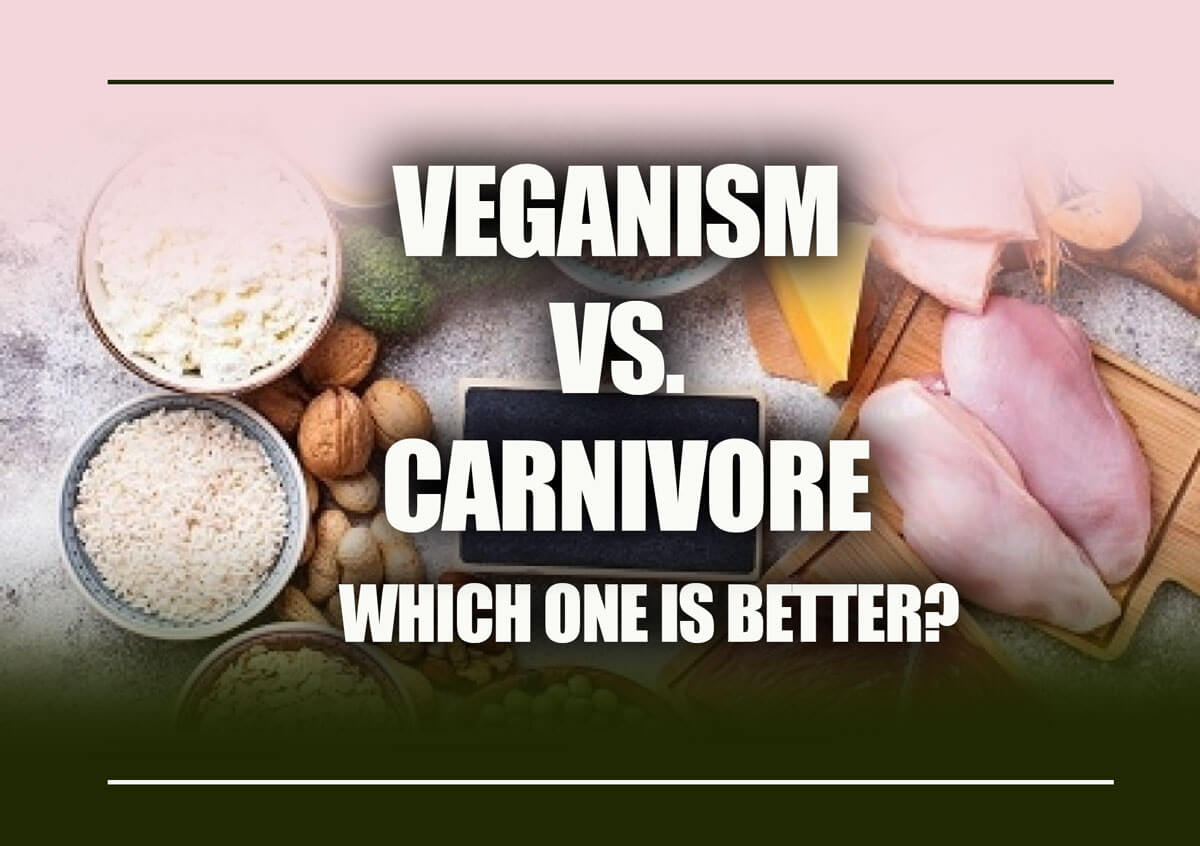
Accessibility & Affordability: Evaluating the Practicality of Veganism
Veganism has come a long way in recent years, and it’s no longer just a niche lifestyle choice.
Nowadays, you can find vegan options in almost every grocery store, and many restaurants have started offering delicious plant-based meals too.
But what about carnivores? If we put veganism vs. carnivore against each other, which is better?
Some people believe that veganism is more expensive than a carnivorous diet.
But hold your tofu dogs, my friend! While some specialty vegan products can be pricey, a plant-based diet can save you some green in the long run.
Staples like grains, legumes, fruits, and vegetables are often cheaper than animal products.
Plus, there are plenty of budget-friendly recipes out there that can satisfy your taste buds without breaking the bank.
Let’s remember the ethical side of things. Veganism promotes compassion and respect for all living beings.
By choosing plant-based options, you’re standing up against animal cruelty and supporting a more humane way of living. That alone can bring a sense of fulfillment and joy to your life.
Carnivore VS. Vegan Diets:
I can provide a comparison table that shows the difference between a carnivore diet and a vegetarian diet:
| Carnivore Diet | Vegan Diet | |
| Food Choices | Emphasizes meat, poultry, and fish |
Excludes animal products
|
| Health Benefits | High protein intake from meat May aid in weight loss Potential increase in muscle mass Promotes satiety and stable blood sugar |
Rich in fiber and antioxidants
Lower risk of heart disease Reduced risk of certain cancers Improved digestion and gut health |
| Nutrient Concerns | Limited complete protein sources Potential deficiencies in fiber, antioxidants, and certain vitamins High intake of saturated fats |
Iron and zinc absorption challenges
Supplementation needed for vitamin B12 |
| Environmental Impact | Increased land and water usage High carbon footprint Land and water usage Animal welfare concerns |
Preservation of natural resources
Low carbon footprint Reduced deforestation, greenhouse gases Conservation of biodiversity |
So, after comparing the carnivore and vegan diets, it’s clear that embracing a vegan lifestyle comes with numerous benefits. By choosing a vegan diet, you can enjoy a lower risk of heart disease, reduced chances of certain cancers, and improved digestion.
Additionally, veganism promotes lower cholesterol levels, contributing to cardiovascular health.
Also, opting for plant-based protein sources helps maintain a healthy weight and build muscle mass.
Final Words
Going vegan can offer numerous health benefits, as it is typically high in fiber, antioxidants, vitamins, and minerals and low in saturated fats.
The vegan diet promotes a compassionate and ethical approach towards animals. By eliminating animal products, vegans avoid contributing to the suffering and exploitation of animals in the food industry. This dietary choice aligns with the belief that all living beings deserve to be treated with respect and kindness.
Remember, going vegan benefits your health and the well-being of animals and the planet. So why not try it and join the growing community of individuals making a positive impact through their food choices?
Whether you are a vegan, carnivore, or even an ominous, you can make a big change by determining your food plan. To quote Gandhi, “Be the change you want to see in the world”!
Leaving a beautiful and green planet is the best legacy any of us can leave for the next generation!
And here, I talked about veganism VS carnivore; I hope you enjoy reading this post blog and find your path.
Are you ready to see your idea regarding veganism & carnivore?
Please share all you know in the comment section.


